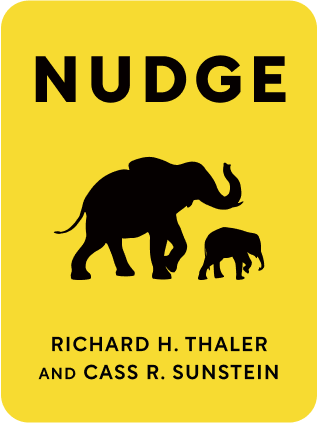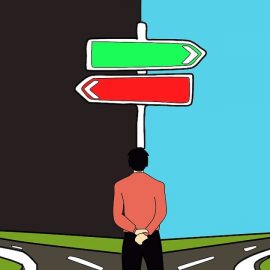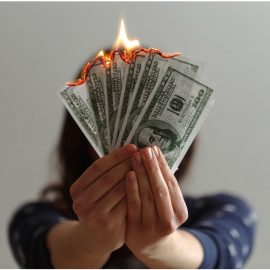

This article is an excerpt from the Shortform summary of "Nudge" by Richard H. Thaler and Cass R. Sunstein. Shortform has the world's best summaries of books you should be reading.
Like this article? Sign up for a free trial here .
What is the difference between humans and econs? What mistakes do humans make that econs avoid?
Humans and econs are terms used to describe two types of decision making. Econs are perfectly rational in their choices, but humans are irrational.
Read on to understand humans and econs.
Humans and Econs: Overview
Humans and econs are very different beings. One of the most important insights of behavioral economics is that self-interested human beings are actually terrible at doing what’s best for themselves. That is, despite having the intellectual capacity to write symphonies or design aircraft or edit genes, we humans consistently and predictably make bad choices in our everyday lives.
A classic example of our poor decision-making is diet. More than 60% of Americans are either obese or overweight, despite the well-known health risks of excess weight. If human beings unfailingly acted in their self-interest, they would always—or, at least, most of the time—choose healthy foods over unhealthy ones.
The fact that human beings don’t always make the right choice for themselves contradicts a central assumption underlying traditional economics: that human beings are always rational and always choose what’s in their self-interest.
Traditional economics gets us wrong because it conceptualizes us as “Econs”—fantastical beings with incredible powers of perception and self-awareness. On the contrary, in behavioral economics, people are conceptualized as “Humans”—often irrational beings prone to make mistakes.
Humans Are Irrational
The reasons for humans’ fallibility are legion, but the dominant factor is simply the way we think. We favor gut feeling over reflection. We rely on rules of thumb rather than research. We allow the way a question is phrased to sway us. Unfortunately, these deeply ingrained ways of dealing with the world tend to lead us astray.
When a Human makes a bad decision, it’s often the result of one or some combination of the following:
- The automatic system overpowering the reflective system.
- Use of heuristics, which are, essentially, rules of thumb; and while they can often aid us in making decisions, they can also lead us astray.
- Social influence because popularity has more to do with social approval than any intrinsic musical factor.
- Temptation and/or mindlessness, both of which are acts without thinking.
- Biases that make you act in a way that is not in your best interest.

———End of Preview———
Like what you just read? Read the rest of the world's best summary of Richard H. Thaler and Cass R. Sunstein's "Nudge" at Shortform .
Here's what you'll find in our full Nudge summary :
- Why subtle changes, like switching the order of two choices, can dramatically change your response
- How to increase the organ donation rate by over 50% through one simple change
- The best way for society to balance individual freedom with social welfare






